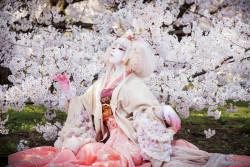
August 26, 2010
The Young and the Hopeless?
The post-Bubble generation is accused of lacking passion and ambition. Yeah, right
By Metropolis
Originally published on metropolis.co.jp on August 2010
I was watching NHK recently and a show came on in which young adults were having a heated debate with members of the older generation. “You youngsters just don’t have dreams anymore,” said one man who looked to be in his early 50s. “In my day, there were no such things as neets or freeters. We all worked hard to make the nation better, and to make our own lives richer by buying things for ourselves and for our economy. Seems to me you are all just scared to dream and afraid of failure.” To this, the 20-somethings argued back with passion and fury, and for the whole hour I was arguing back with them.
I am Japanese and 24 years old, and at the time that this show aired, I was in the midst of a life-altering decision: I was about to make a potentially reckless career change by pursuing my childhood dream of becoming a veterinarian. And here’s this 50-something oyaji accusing my generation of being cowardly underachievers?
Clearly, older Japanese fail to understand the concerns of young people like me—which is hardly surprising, as generation gaps have existed all over the world for as long as there have been parents and children. Yet the problem is that their stereotypical view has come to define my generation. We are labeled as Shohi Shinai Wakamono or “Young People That Don’t Spend.” When you Google wakamono (“youngster”) in Japanese, the words shohi shinai (“will not spend”) pop up, as though the two terms should belong together. Seriously?
To be sure, my generation spends less than our Bubble-era predecessors, who are currently in their late 30s and 40s. But why is this so? Because, having spent the prime of their lives during the economic Golden Age, they developed a passion for the “3K”: kuruma (cars), kaden (home electronics) and kaigai ryoko (travel). Their idea of success meant working at a top-notch corporation, owning a big house and an expensive car, and vacationing in Waikiki—all attainable dreams, even for the average Joe. Yet in 2010, when over 37 percent of single people in their 20s have an annual income of ¥1-¥2 million, and when even getting a job is no longer guaranteed, the same dream is next to impossible.
One reason the media makes a big deal out of this is the belief that our failure to embrace The Next Big (Material) Thing drags down the whole economy. If we don’t buy, they say, the older generation will not follow suit, and there will be no trends. If there are no trends, companies will not make money. And if companies don’t make any money, budgets will be slashed, employees laid off, and the country will go bankrupt.

Illustration by Enrique Balducci
But aside from economics, why are we categorized as a bunch of cowardly losers? It’s no wonder that many members of my generation suffer from disillusionment. We’ve seen the economy collapse before our eyes and our parents suffer from it—twice. The internet is brimming with thousands of stories of real-life failures. We’ve read about the depressing suicide rate, and understand that life ain’t a fairytale. But there’s another, much bigger, and simpler explanation for why the older generation just doesn’t “get” us: their values don’t coincide with ours. That’s why, in their eyes, we are spiritless zombies obsessed with the internet and afraid to hope or dream.
Well, don’t tell that to my friends “S” and “L”. They work at a large Japanese corporation—not to make money to spend on brand goods, but because they’re saving up for their dream of opening an inn for foreign tourists. Or my best friend “K”. She loves to travel—any chance she gets, she’ll tell you about her trip to Egypt, or Turkey, or Denmark. She hasn’t had the time to go overseas at all since landing a full-time job, but her dream is to travel around the world and open up a little store full of local goods. Another friend’s dream is to work at UNICEF. She’s currently studying to land a position at the Ministry of Foreign Affairs.
Instead of lacking drive or passion, my generation is defined by a belief that happiness cannot be measured by comparing ourselves to others. Older Japanese may say that we’re missing a competitive streak, but I would say that we accept and appreciate differences and focus on our own personal idea of success.







